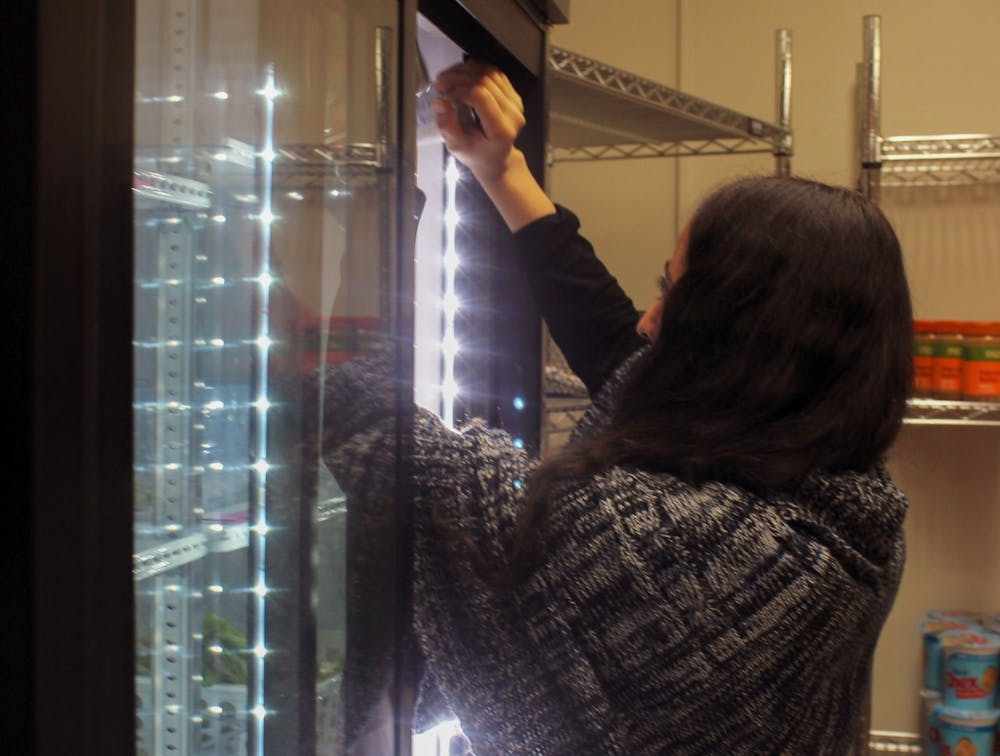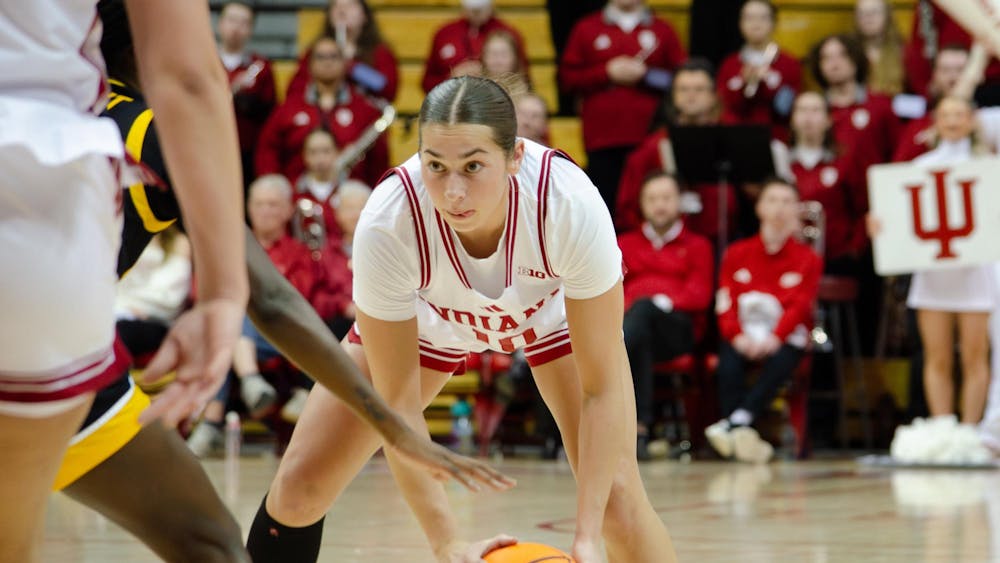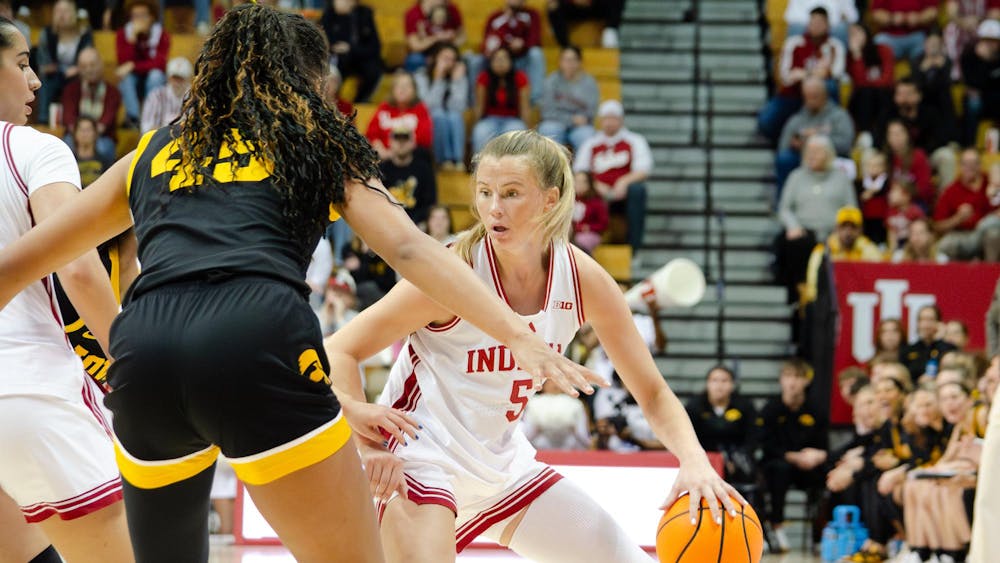Crimson Cupboard food pantry opened a second satellite location in the Indiana Memorial Union building this semester in order to extend their reach to students grappling with food insecurity.
Brandon Shurr, director of Crimson Cupboard and senior assistant director of community engagement in the Student Involvement and Leadership Center, said Crimson Cupboard is a food pantry that offers free and healthy food to IU students who struggle with food insecurity.
According to the U.S. Department of Agriculture, food insecurity is the limited or uncertain availability of nutritionally adequate and safe foods or limited or uncertain ability to acquire acceptable foods in socially acceptable ways.
Students can visit the pantry once a week after filling out a client form about general personal and demographic information. Crimson Cupboard also allows students to request meal points to use at McNutt or Forest dining halls.
Related: [Rises in “all-you-care-to-eat" food waste puts strains on IU Dining workers]
Shurr said Crimson Cupboard was founded in 2015 by former IU student Mercedes Jones, who started the organization after realizing there was a need for a food pantry on campus.
Along with the new IMU satellite pantry, Crimson Cupboard also operates their main pantry at Campus View Apartments. Shurr said they opened the satellite pantry was to serve more students in a central location.
“It’s just a way to get the attention of students that may be struggling with food insecurity that are never out in the Campus View area or also don’t know about the other pantry,” Shurr said. “The satellite just allows more people to know about the food pantry.”
Crimson Cupboard’s goal is to diminish the negative effects that food insecurity has on students’ college careers, Shurr said. According to a Hope Center survey from March 2021, three in five college students experience basic needs insecurity, which includes food insecurity.
“The main issue is making sure that students aren’t missing or dropping out of classes because they’re going hungry,” Shurr said. “Ultimately by helping students find and get nutritious food, that raises their chances to finish their college career.”
Crimson Cupboard, a program of the IU Division of Student Affairs, is run by Shurr, three graduate assistants from the O’Neill School, two Cox scholars and three to five regular weekly volunteers. Crimson Cupboard stocks its pantries from donated food, which is collected through food drives or from the Hoosier Hills Food Bank.
Crimson Cupboard is not alone in fighting food insecurity on campus. Founded in 2019, IU Campus Kitchen is a student-run organization that packages free, healthy meals for students struggling with food insecurity. Volunteers from the organization go to different farmers markets to pick out produce and pack them into small bags for the students.
Thomas Zeedyk, program assistant and coordinator for IU Campus Kitchen, said the organization puts together 250 bags each semester. Zeedyk said one of the biggest misconceptions about food insecurity on college campuses is that very few people struggle with the issue.
Related: [Confused by IU Dining’s new meal plans? We have answers.]
“There are a lot of undergrads and a lot of graduate students who are also food insecure,” Zeedyk said. “Some people don’t even know they’re insecure.”
Zeedyk said promoting educational programs and raising awareness are important to fighting food insecurity on college campuses.
“Some people don’t even know what it means to be food insecure,” Thomas said. “Understanding that will give you a better look into food insecurity, especially at IU.”
Zeedyk said that IU Campus Kitchen is currently working with IU Dining to launch a program that allows the IU Campus Kitchen to take the dining halls’ leftover food and redistribute it to students. Zeedyk said that he hopes to see the program launch within the next two semesters.
The IU Food Institute is also working to promote sustainable and reliable food sources through The Real Food Challenge. The Real Food Challenge is a national organization that provides colleges and universities with resources aimed at developing sustainable, local, fair and humane food sources. The standards constituting “real food” includes being local/community based, humane, fairly traded and ecologically sound.
According to Jodee Smith, assistant director of the IU Food Institute, in the 2014 fiscal year, the year that the first Real Food Calculator was initiated at IU, only 3.8% of food qualified as “real food.”
“For many years, the IU Food Institute, engaged faculty, passionate student interns, and campus co-leaders like IU Dining and Sustain IU have worked to promote the Real Food Challenge on campus and to shift food procurement to suppliers who meet sustainability standards,” Smith said in an email.
Smith said from 2017 to 2020, IU increased its purchasing of foods that qualify as “real foods” from 5.59% to 13.10% of expenditures, which totaled $1.87 million. Smith said despite efforts from students and supporting campus groups, like IU Food institute, there has been little commitment from campus leadership on sustainable food purchasing either by committing to the Real Food Challenge standards, or through the creation of a university specific sustainable food purchasing standard.
IU’s current sustainable purchasing policy does not directly address food purchases. Instead, it states the university will avoid wood or paper products derived from old growth forests and that all energy consuming products, appliances and equipment purchased should be Energy Star qualified “whenever possible or practical.”






